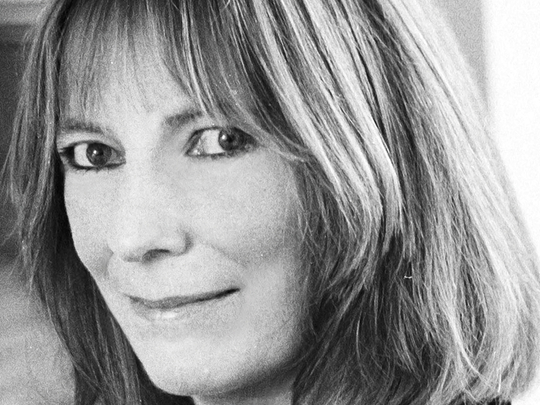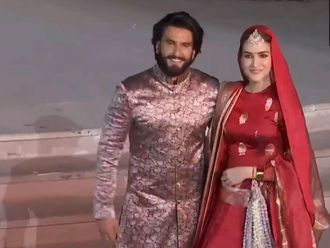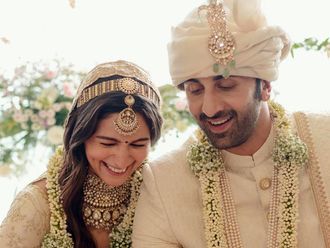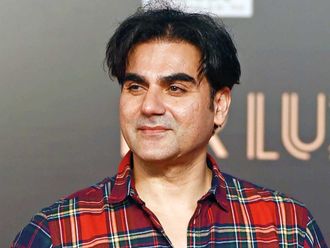
Lucy Hughes-Hallett had a 40-year career as a journalist, critic and historical author behind her when, in November 2013, she hit the publishing jackpot. Herbiography of the Italian poet and demagogue Gabriele d’Annunzio, The Pike, published relatively quietly nine months earlier, won, among others, the Samuel Johnson prize for non-fiction and the Costa prize for biography. What had been a well-regarded slow seller turned into the kind of book that gets unwrapped across the land on Christmas Day.
Four years on, Hughes-Hallett is about to publish her first novel. At first sight Peculiar Ground has little in common with The Pike, apart from the fact that both are big books that grew out of small ones: while her research on d’Annunzio began life as a possible chapter in a book of essays, Peculiar Ground might have been a novella.
“I hate big books, I don’t think I’ve ever set out to write a big book,” she tells me in the museum cafe where we meet. “Plutarch wrote wonderful biographies which are brief essays, which is a much better way, I think, of approaching a life. Big, comprehensive biographies tell you far more than you need to know.”
Just as d’Annunzio’s extraordinary exploits drew her in, and kept her gripped until she had written close to 1,000 pages (her brother helped her edit this down to a size her publisher could cope with), Peculiar Ground burst the boundaries of the weekend in 1961 that was its starting-point, spilling all the way back to the 1660s.
But the two projects have more in common than this. While d’Annunzio fascinated her because he seemed to personify the overlap between romanticism and fascism, what drew her to the Restoration was her sense that this was another meeting place between currents of powerful ideas.
Isaac Newton coming up with the beginnings of maths and science while also being an alchemist. The middle ages are still there and yet the Enlightenment has already started — so there’s an overlap between science and witchcraft,” she explains. “Popular history has it that here was Charles II the merry monarch and everybody was having a lovely time, the theatres were open again, there was
Nell Gwyn being a wench and everything was fun, fun, fun — when in fact it was a society completely divided against itself, as is any society following a civil war.”
With d’Annunzio, Hughes-Hallett came at a period of history many British readers are familiar with — the First World War — from an unexpected tangent: Italy. In Peculiar Ground, she comes at the civil war from its aftermath. Lord Woldingham has returned from exile to his Oxfordshire estate, Wychwood, where he has commissioned the building of a wall around the park. His parliamentarian sister-in-law has been the caretaker during his absence, for this is a liberal enclave where political disagreement, religious dissent and magic are tolerated. Landscape gardening, and the act of enclosure, are symbols heavy with meaning.
Three centuries on, the house’s modern owners and their friends observe the fall of the Berlin Wall. When she started writing this novel all about boundaries, did Hughes-Hallett have modern borders such as Donald Trump’s proposed wall in mind?
“It was quite spooky,” she says. “When I was writing the section about people fleeing London from the plague, the newspapers were full of pictures of migrants walking up through the Balkans and trying to get into Hungary. But the truth is there have always been migrants, and privileged communities who try to exclude those others who are trying to get in.”
Hughes-Hallett’s father was the model for Hugo Lane, the estate manager in her novel, and the setting is based on Cornbury, the Oxfordshire estate that was her childhood home. She has not been asked to talk much about herself by interviewers before: with biography, the attention tends to be on the subject, and her quiet life could not compete with d’Annunzio’s utterly extraordinary one.
She says the portrait of her father in the novel is “greatly idealised, or not so much that he is idealised but his relationship with his daughter is very much better than any relationship I ever had with my father – there’s a bit of wish-fulfilment there. Like most men of his generation he had not much interest in his children at all. It’s pathetic, isn’t it?” She laughs at herself.
She had an old-fashioned and privileged English country childhood: “This is going to sound sadly Jane Eyre-ish but to begin with I was taught at home by a governess,” she says. The teacher, Mrs Shaw, lived in the attic and there were up to half a dozen children in the class. “It really didn’t follow any kind of national curriculum, we studied literature by learning poetry off by heart.”
Miserable at boarding school, she was allowed to leave and was tutored through her A-levels, failed to get into Oxford and, following a gap year in Florence, ended up studying English at Bedford College in Regent’s Park. After that, she got a job writing profiles for Vogue. On the literary circuit she bumped into the man who would become her husband, the publisher Dan Franklin, whom she had known vaguely as a teenager because he was friends with the son of a friend of her mother’s. They made their life in London, and have twin daughters who are now grown-up.
“He was saturnine,” she says of those early, brief encounters, “with long dark hair, and would listen to very cool music — Howlin’ Wolf and John Mayall — but we never spoke to each other.”
Hughes-Hallett, who had a younger as well as an elder brother, was not cool, and was more interested in 19th-century novels than the American-influenced counterculture. Her autodidact mother thought children should start on grown-up books “as soon as they possibly could, she would have been appalled by the concept of young adult fiction, I think rightly, so when I was 11 or 12, I was reading Charlotte Bronte and War and Peace.”
She bought the Rolling Stones’ first single (Come on, in 1963), and walked around barefoot because that’s what people did in those days, but “was always a bit of a swot really, and never liked dancing all night, I wasn’t a wild child at all”.
There are an awful lot of English novels about grand people in grand houses, and I was more interested in the outsiderish perspective of Restoration landscape architect Mr Norris than in the lives and loves of Wychwood’s modern denizens. There are families in Hughes-Hallett’s fictional walled park who have been there for hundreds of years, and the intrusion of a TV crew and the 1980s nostalgia industry make for a tawdry decline, while the deaths of two children seem to underline the fact that this is an endangered way of life.
Is it fair to read her novel as conservative, then – an elegy for a pre-industrial system already on its last legs when she was growing up?
“Yes, I think there’s a bit of that. Paternalistic is now a derogatory word … Obviously there were landowners who were ruthless and exploited their employees, but some were not. Those estates were businesses not designed for profit but for pleasure and beauty and all sorts of non-utilitarian things, so that’s interesting. The planting of trees is very important in the book, and I’m quite moved by people planting trees they will never see grow. It’s partly about self-aggrandisement but it’s also about posterity.”
She thinks Kazuo Ishiguro the best novelist of her generation and talks admiringly of his control of language. But she has also found herself wondering why people revere novelists so much – “what they do is easy compared with non-fiction. But here I am, very late in life, I’ve been wanting to write a novel all that time and somehow I just couldn’t seem to do it.”
“There is this theory, isn’t there, that you can write a book by going for long walks, but that doesn’t seem to work,” she says. “I spend a lot of time staring desperately out of the window thinking ‘how can I fit these things together? What do these facts and ideas mean? What’s the point of them?’ That in-between process is really the hardest and surprisingly few writers ever talk about it.”
So what is the point of novels, does she think? “Entertainment, definitely, pleasure: I really enjoy reading fiction, that’s hugely important and shouldn’t be lost sight of, ever. I think getting inside other people’s heads, even if they are imaginary people, is very important. One life isn’t enough and when things start to go really bad politically is when people forget to see the other side’s point of view. That’s the way in which fiction can be useful.”
Hughes-Hallett’s book about d’Annunzio, an inspiration and precursor to Mussolini, feels remarkably relevant today, as authoritarians gain in strength from the US to Turkey, France and the UK. She has been thinking about these kinds of figures for a long time, “and how populists, maybe someone who is colourful, or has a military background or who is very sexy – can win power away from thoughtful, democratic, liberal folk.” In her biographical collection Heroes
she argued that the Scottish historian Thomas Carlyle, along with Nietzsche, cleared a path for the 20th-century dictators with their hero-worshipping, anti-democratic ideals.
“Suddenly it’s happening all over and how frightening is that? But I don’t feel surprised, I don’t think people choose candidates for rational reasons, I think they choose them because they feel attracted to them. Mussolini and Hitler were both popular leaders, they didn’t have to fight their way to power.”
Her next book will be a collection of retellings of fairy stories and myths, and she is thinking about a London story too. What a boon to write of a debut novelist aged 65: Lucy Hughes-Hallett is a new and unusual talent to watch.
–Guardian News & Media Ltd









